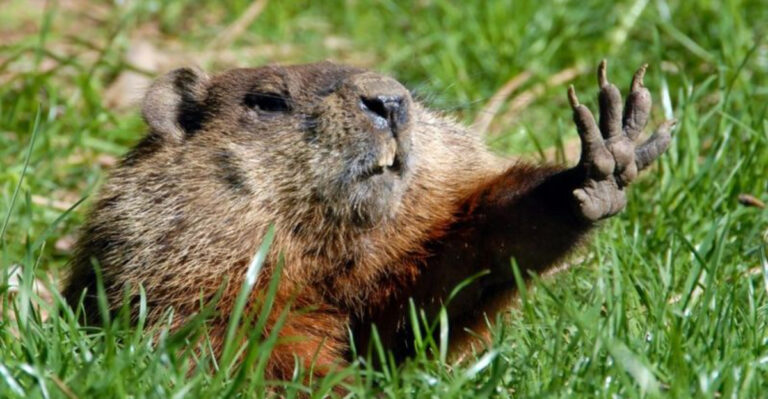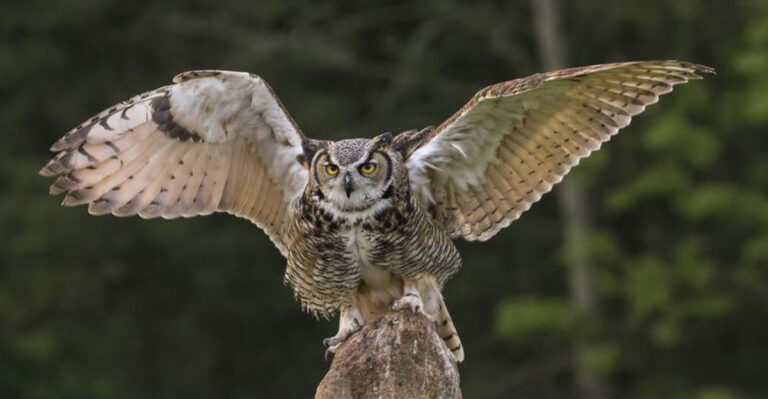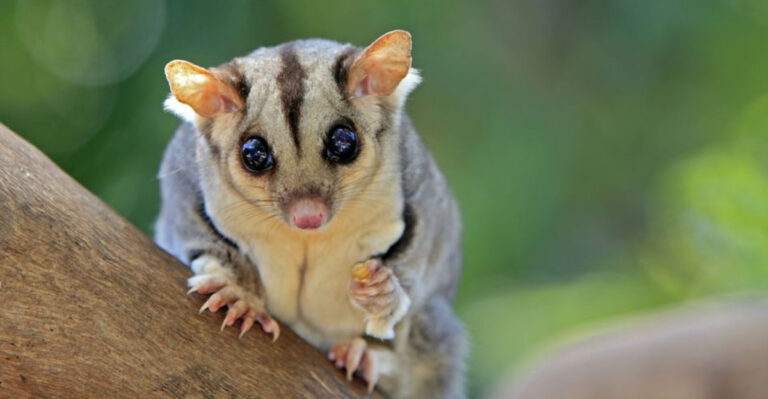15 Dog Breeds That Respect Boundaries And Rarely Try To Escape
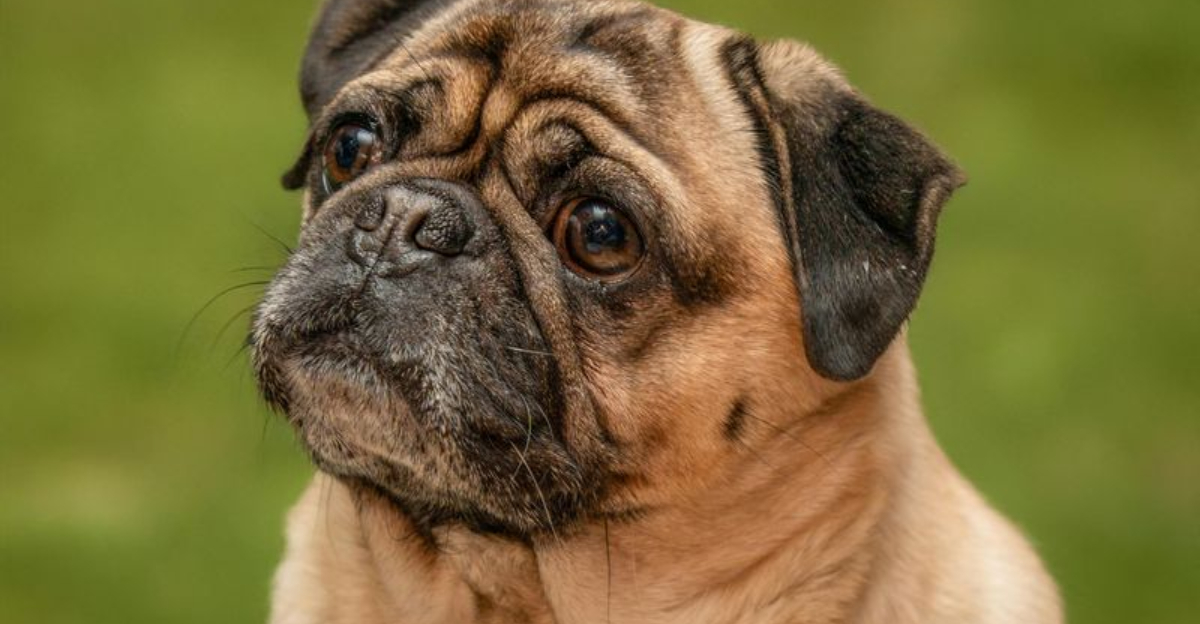
Finding a dog that stays put without constantly testing fences or bolting through open doors can save pet owners a lot of worry.
Some breeds naturally respect boundaries and don’t feel the urge to roam, making them ideal companions for homes without fortress-like security.
1. Cavalier King Charles Spaniel

Royal by nature and loyal by heart, these elegant spaniels prefer the comfort of your lap to the adventure of the unknown world outside. Their gentle temperament makes them content to stay where their beloved humans are.
Cavaliers form such strong bonds with their families that the thought of wandering off simply doesn’t cross their minds. They’re perfectly happy lounging on your sofa or following you from room to room.
These adaptable companions thrive on affection and routine, making them naturally respectful of home boundaries without any special training.
2. Shih Tzu

Originally bred as palace companions for Chinese royalty, Shih Tzus have mastered the art of indoor living.
These little lions (as their name translates) consider themselves nobility and prefer the luxury of home to outdoor adventures.
Their short legs and flat faces make them poor candidates for long-distance travel anyway. Most Shih Tzus would rather curl up on a pillow than plot an escape.
Friendly and affectionate, these dogs form strong attachments to their families and show little interest in exploring beyond their kingdom’s walls.
3. Newfoundland
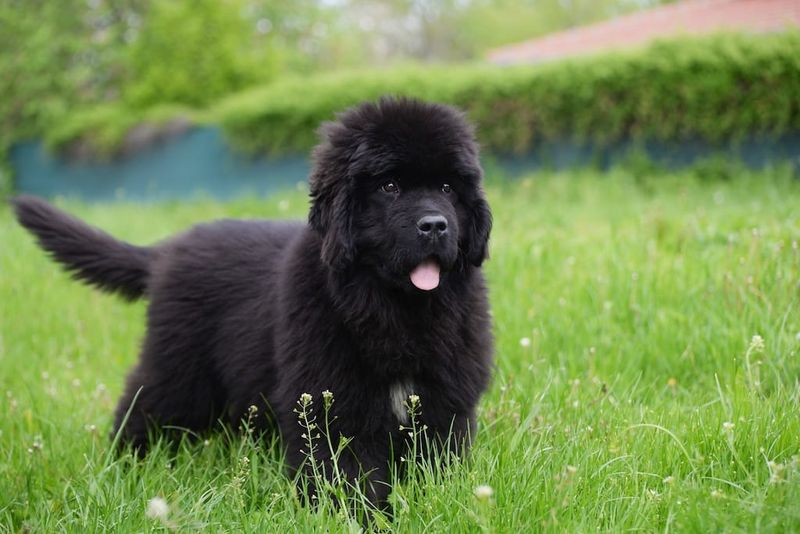
Gentle giants with hearts to match, Newfoundlands are famous for their unwavering loyalty. Despite their impressive size and strength, these water-loving dogs typically stay close to home base, preferring to keep watch over their family.
Historically bred as working dogs for fishermen, Newfies were valued for their ability to stay with the boat rather than swimming away. This same instinct translates to home life, where they remain faithful guardians.
Their calm demeanor and natural protectiveness make them unlikely to wander, as they take their job of family protection seriously.
4. Maltese
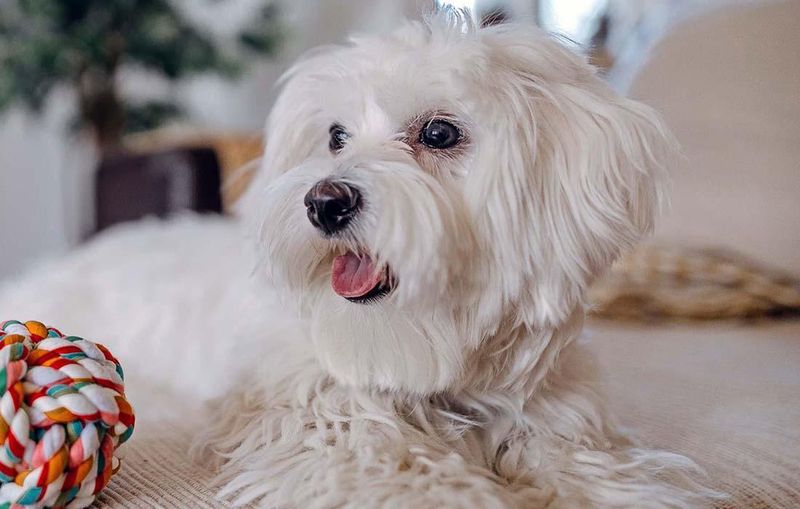
Aristocratic and pampered throughout history, the Maltese has never had to fend for itself in the wild.
These delicate white fluffballs have been companion dogs for thousands of years, perfectly content within palace walls.
Modern Maltese maintain this indoor preference, showing little interest in dirt, mud, or unsupervised outdoor adventures. Their attachment to their humans is legendary, making separation a far greater concern than escape.
Small enough to be satisfied with indoor exercise and naturally cautious of the big world outside, Maltese dogs typically respect home boundaries without much training.
5. Basset Hound
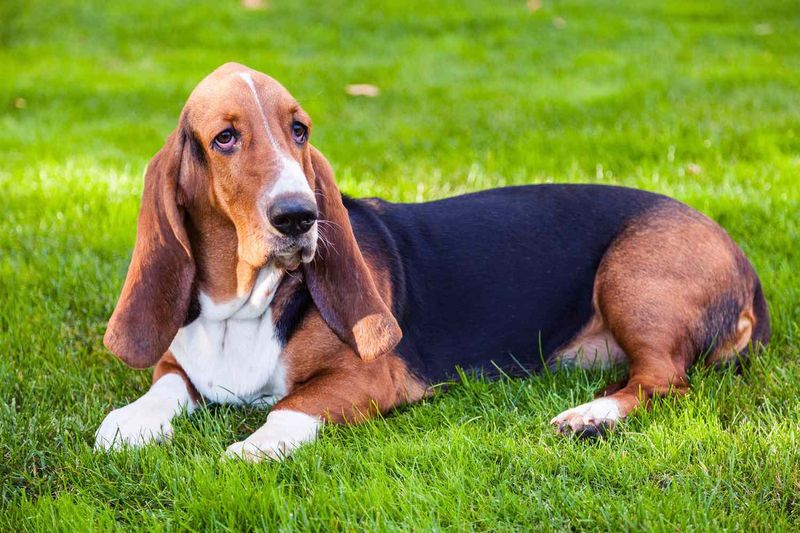
With their short legs and long bodies, Basset Hounds weren’t built for fence-jumping or speed records.
These laid-back canines prefer tracking scents at a leisurely pace rather than making a break for freedom.
Famous for their easygoing nature, Bassets often choose the path of least resistance – which usually means staying put. While they’ll follow an interesting smell, they’re not known for wandering far from home territory.
The Basset’s reputation as a couch potato isn’t entirely undeserved. Many owners find their biggest challenge is motivating these dogs for exercise, not preventing escapes.
6. Bichon Frise

Cotton-ball fluffy and perpetually cheerful, the Bichon Frise thrives on human companionship.
These former circus performers know their audience is at home, not in the wider world.
Bichons were historically valued as lap dogs on sailing ships, where wandering off would have been disastrous. This heritage contributes to their natural inclination to stay close to their people rather than seeking independence.
Their friendly, people-oriented personalities make them more interested in following you from room to room than plotting a jailbreak.
Most Bichons would rather be the center of attention than explore the neighborhood solo.
7. Great Pyrenees
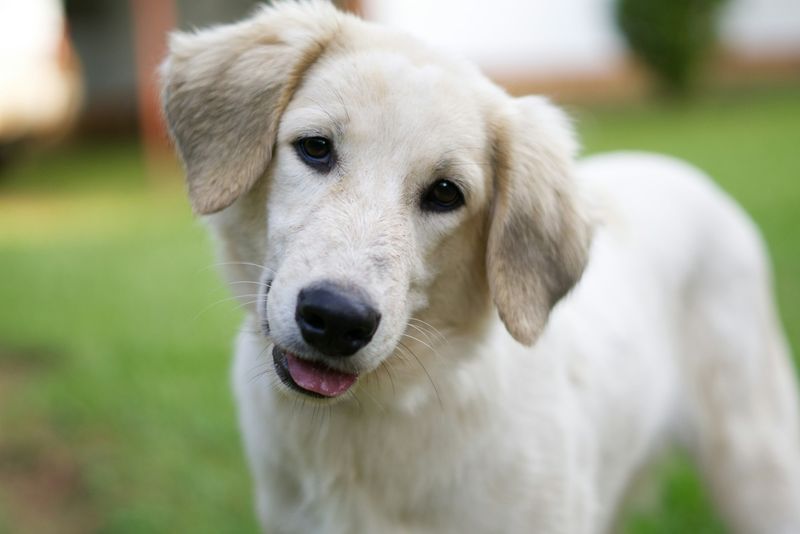
Mountain guardians with a serious sense of duty, Great Pyrenees dogs were bred to protect flocks within specific territories.
This ancient instinct makes them naturally inclined to respect and defend boundaries rather than cross them.
Unlike many working breeds who might roam, the Pyr’s guarding instinct actually keeps them anchored to their perceived territory. They patrol rather than escape, considering your property their domain to protect.
These majestic white dogs form deep bonds with their families and livestock, viewing them as charges to be watched over rather than left behind.
Their independence is expressed through vigilance, not wanderlust.
8. Bulldog
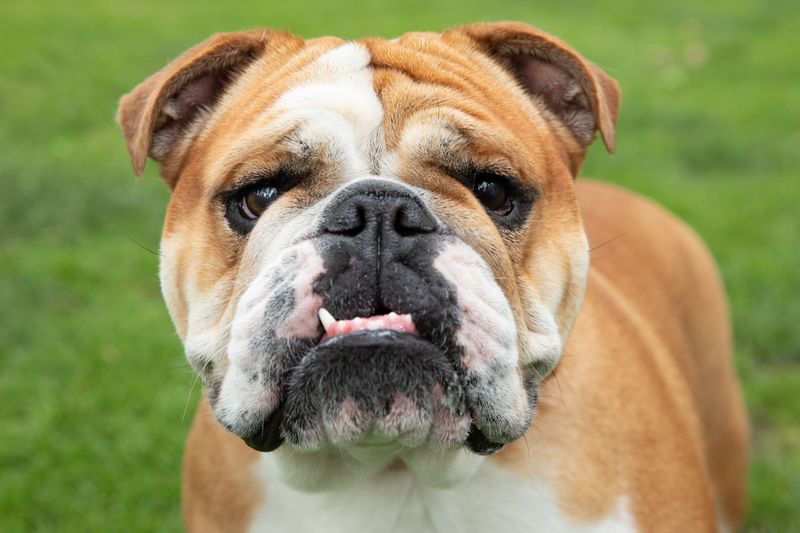
Stubborn yet sweet, Bulldogs have perfected the art of comfortable living.
Their stocky build and limited energy reserves make ambitious escape attempts both challenging and unappealing to these lovable loafers.
The typical Bulldog considers a walk to the food bowl adequate exercise. Heat sensitivity further discourages outdoor adventures, as these brachycephalic pups prefer climate-controlled environments to summer escapades.
Known for forming strong bonds with their families, Bulldogs generally see no reason to venture beyond their cushy home setup.
Most owners worry more about motivating their Bulldog to exercise than preventing escapes.
9. Greyhound
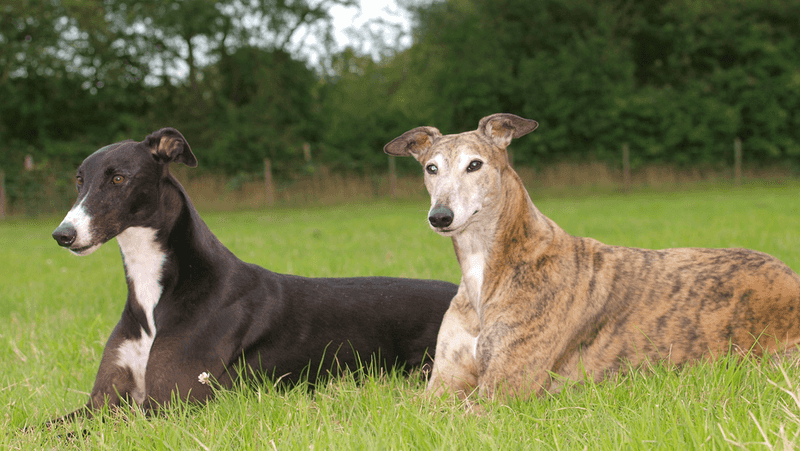
Surprising to many, retired racing Greyhounds make phenomenally lazy house pets.
While capable of incredible speed, these elegant dogs are actually world-class loungers who spend up to 18 hours daily sleeping.
Greyhounds typically run in short bursts rather than maintaining sustained activity. After retirement from racing, many develop a pronounced appreciation for soft furniture and indoor comfort.
Their sweet, gentle temperament makes them bond closely with their adopters.
Despite their athletic capability, most Greyhounds show remarkable respect for home boundaries and little interest in unauthorized adventures once they understand the concept of ‘home.’
10. Pug
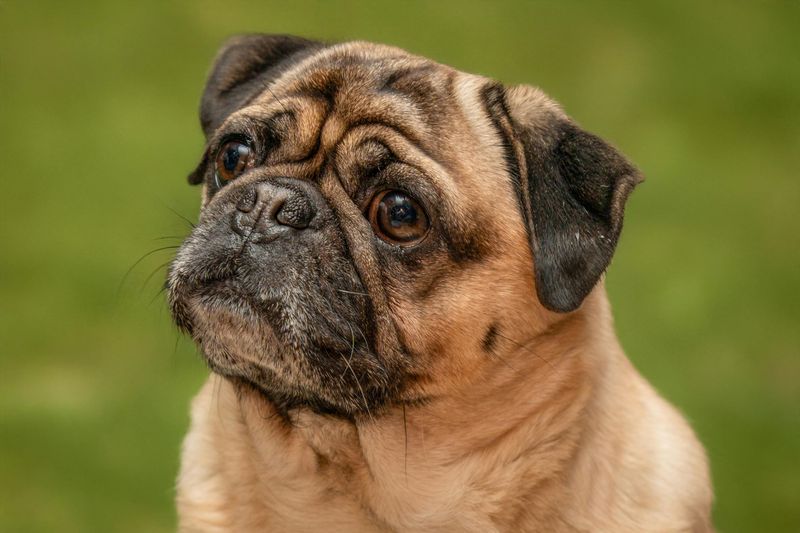
Clownish and charming, Pugs were developed exclusively for companionship and have fulfilled this role for centuries.
These squish-faced comedians consider human attention their birthright and see little value in solo adventures.
Their physical limitations play a role too. With breathing challenges and poor temperature regulation, Pugs naturally prefer controlled environments to wilderness exploration. Most would rather follow you to the kitchen than to the great outdoors.
Historically bred as lap dogs for Chinese emperors, Pugs maintain their ancestral preference for luxury and comfort over adventure.
Their devotion to their humans typically outweighs any curiosity about the world beyond your fence.
11. Bernese Mountain Dog
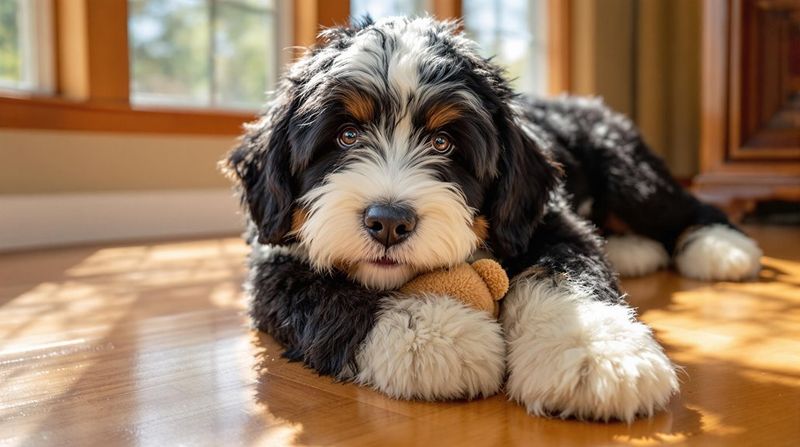
Gentle-natured and devoted to family, Bernese Mountain Dogs display remarkable home loyalty despite their working heritage.
Unlike some working breeds that roam, Berners were farm dogs who stayed close to homesteads, not wanderers.
Their strong pack mentality means they view their human family as their essential social group. Separation from this pack holds little appeal for these sensitive giants, who thrive on togetherness rather than independence.
While they enjoy outdoor activities, Berners typically prefer to experience adventures with their people rather than solo.
Their calm temperament and family focus make them naturally respectful of property boundaries.
12. Pekingese

Once the sacred dogs of Chinese emperors, Pekingese carry themselves with an air of royalty that suggests the outdoors is beneath their dignity.
These lion-like little dogs were literally carried on silken pillows throughout history—a tradition they seem to remember.
Their flat faces and thick coats make them poorly suited for outdoor adventures anyway. Most Pekingese prefer climate-controlled comfort to wild explorations, showing little interest in what lies beyond their domain.
Fiercely loyal to their chosen people, these independent thinkers nonetheless respect home boundaries naturally.
Their stubborn streak rarely manifests as wanderlust, instead appearing as a dignified refusal to be rushed on walks.
13. Chow Chow
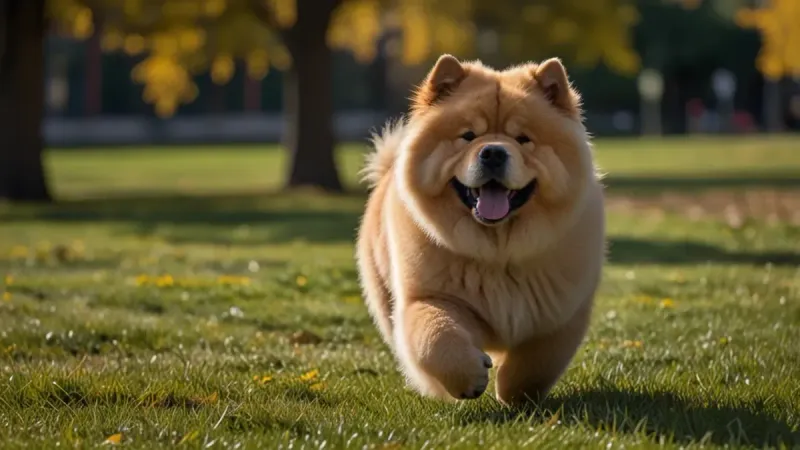
Aloof and dignified, Chow Chows approach life with a cat-like independence that rarely includes escape attempts.
These ancient Chinese breeds value their territory and consider themselves guardians rather than explorers.
Their naturally reserved demeanor extends to a general disinterest in strangers and unfamiliar places. Most Chows bond deeply with their immediate family while maintaining a healthy suspicion of the unknown world beyond their boundaries.
Originally bred as all-purpose working dogs who guarded homes, Chows retain their territorial instincts.
They typically patrol rather than escape, viewing your property as their domain to protect rather than a prison to flee.
14. French Bulldog
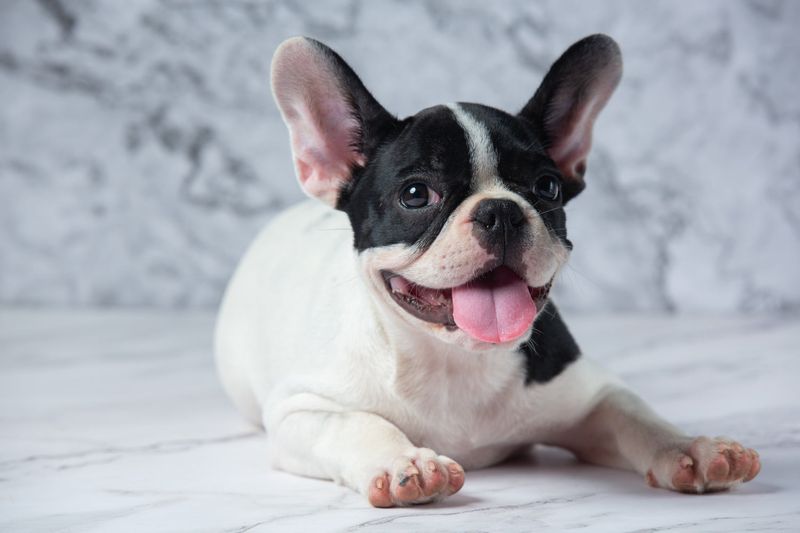
Playful yet relaxed, Frenchies have skyrocketed in popularity partly because they’re perfectly suited to apartment living.
Their compact build and moderate exercise needs make them naturally inclined to respect indoor boundaries.
Similar to their English Bulldog cousins, French Bulldogs struggle with temperature regulation and breathing during extended exertion. Most prefer air conditioning to adventure, showing little interest in unauthorized neighborhood tours.
Their affectionate, people-oriented nature creates strong family bonds.
Frenchies typically follow their humans from room to room rather than seeking independence, making them naturally unlikely to attempt escapes.
15. Chinese Shar-Pei
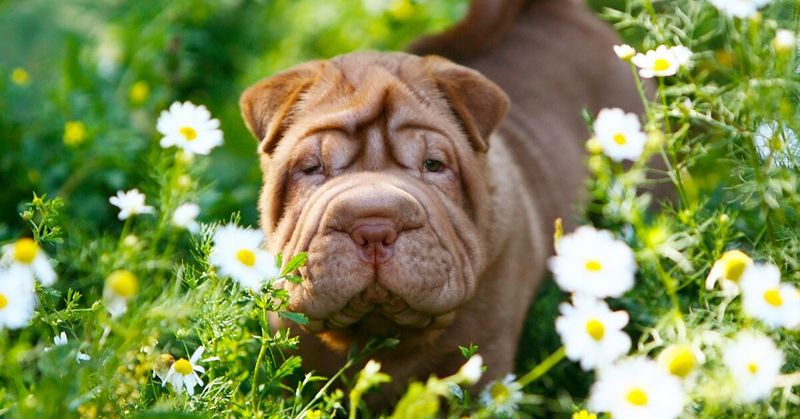
Wrinkled and reserved, Shar-Peis approach life with a dignified seriousness that includes respecting territory boundaries.
Originally bred as guard dogs, they maintain a natural inclination to protect rather than abandon their domain.
Their independent yet loyal nature creates a unique balance. While not overly demonstrative, Shar-Peis form deep bonds with their families and show little interest in adventures without them.
Unlike breeds bred to work at a distance from humans, Shar-Peis were developed to stay close to home and defend it.
This heritage contributes to their natural tendency to respect boundaries without extensive training.



